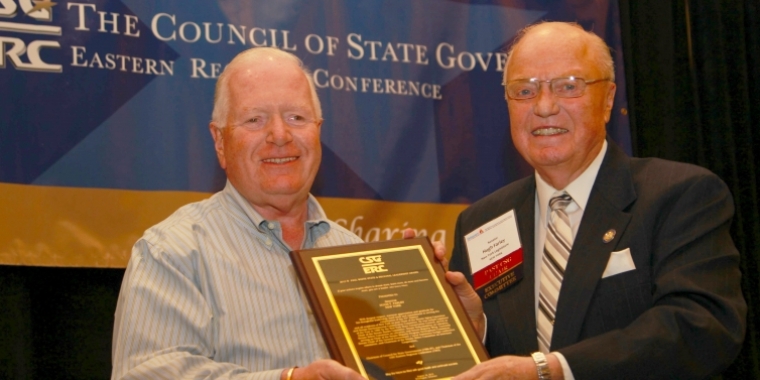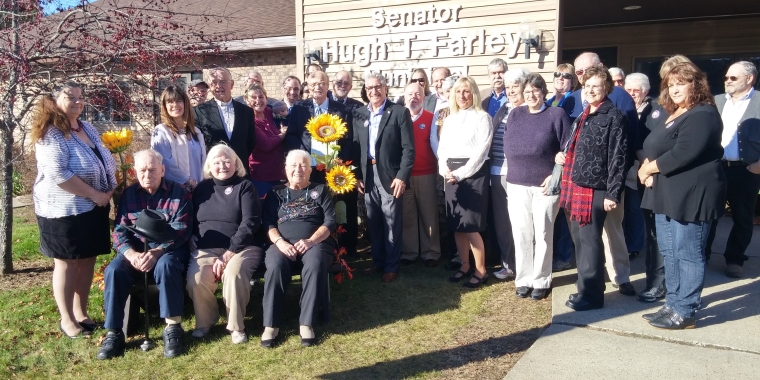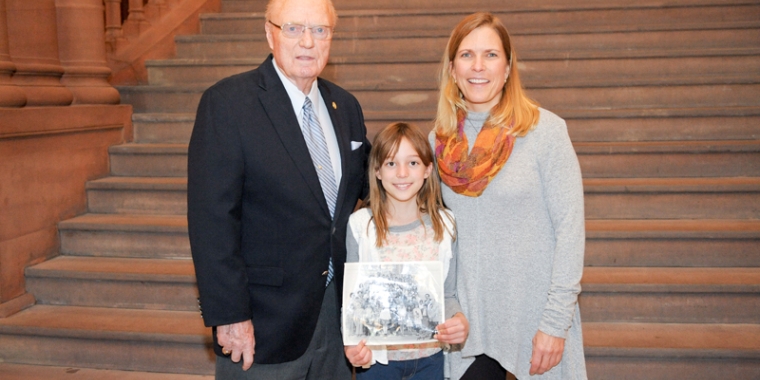
Sen. Farley Announces Senate Passes Legislation to Help Family Caregivers
Hugh T. Farley
April 22, 2015
-
ISSUE:
- Aging
State Senator Hugh T. Farley (R, C, I – Schenectady) reports that he and his colleagues in the New York State Senate recently passed a measure that would help caregivers receive the necessary resources to deliver care to older adults and others with long term health needs in a home setting. The CARE Act (S676A) would reduce future hospitalizations of patients by ensuring that caregivers are involved in and educated about patients’ needs and how to best meet them once they leave the hospital.
At any given time, an estimated 4.1 million New Yorkers provide varying degrees of unreimbursed care to adults with limitations in daily activities. While most caregivers are asked to assist an individual with basic activities of daily living, such as mobility, eating, and dressing, many are expected to perform complex tasks on a daily basis such as administering multiple medications, providing wound care, and operating medical equipment.
Despite the vast importance of caregivers in the individual's day-to-day care, many caregivers find that they are often left out of discussions involving a patient's care while in the hospital and, upon the patient's discharge, receive little to no instruction in the tasks they are expected to perform.
The Caregiver Advise, Record, and Enable (CARE) Act passed today would help address these challenges by having caregivers and hospitals work together in the development of a care plan. Upon admission to a hospital, a patient would be able to designate a caregiver in the patient's medical record. Prior to the patient's discharge to their residence or transfer to another facility, the hospital would need to notify and offer to meet with the designated caregiver to discuss the patient's plan of care and offer to adequately train the designated caregiver in certain aftercare tasks.
This approach would not only improve the quality of care provided to patients once they leave a hospital setting, but it would help reduce an estimated $17 billion in Medicare funds spent each year nationally on hospital readmissions that would not be needed if patients get the right care.
In addition to this measure, the Senate recently passed a state budget that includes significant funding increases that support resources for long term care patients and caregivers. An additional $25 million will support Alzheimer’s programs in 2015-16, and an increase of more than $8 million will go to the New York Connects program for a statewide expansion that will give more patients access to long term care options, services, and support. The budget also increased funding for the Community Services for the Elderly Program by $2.5 million and included an additional $500,000 for the Long Term Care Ombudsman Program.
The bill will be sent to the Assembly.
Share this Article or Press Release
Newsroom
Go to Newsroom
Best Wishes from Senator Hugh T. Farley
December 22, 2016

Senator Farley Honored by Home Town
November 21, 2016

Senator Farley Enjoys School Tour
November 17, 2016
